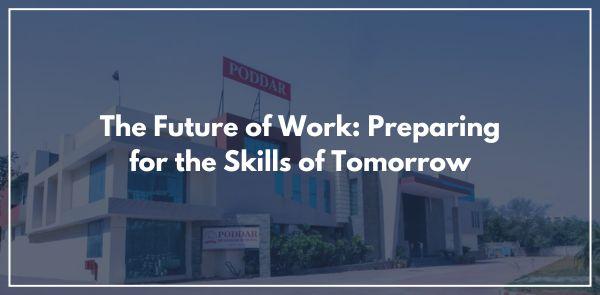
As the professional landscape undergoes rapid transformation, driven by technological advancements and shifting economic paradigms, preparing for the future of work becomes imperative. Business students must equip themselves with a blend of technical proficiencies and essential soft skills to navigate and excel in this evolving environment.
Digital Literacy and Data Analysis
In an era where data is a critical asset, proficiency in digital tools and data analysis is paramount. Understanding how to interpret and leverage data enables informed decision-making and strategic planning, providing a competitive edge in various business sectors.
Artificial Intelligence and Machine Learning
Artificial Intelligence (AI) and Machine Learning (ML) are revolutionizing industries by automating processes and offering advanced analytics. Familiarity with these technologies and their applications is increasingly valuable, as they become integral to business operations and innovation.
Critical Thinking and Adaptability
The ability to analyze complex problems and adapt to new challenges is crucial. As automation reshapes job roles, critical thinking and adaptability distinguish professionals capable of navigating uncertainty and driving progress.
Emotional Intelligence and Collaboration
Effective interpersonal skills, including empathy and communication, foster strong teamwork and leadership. Emotional intelligence enhances collaboration, a vital component in diverse and dynamic work environments.
Continuous Learning and Resilience
The commitment to lifelong learning ensures professionals remain relevant as industries evolve. Resilience enables individuals to embrace change and recover from setbacks, qualities essential for sustained success in a fluctuating job market
Integrating these competencies into business education prepares students to meet the demands of the future workforce. By fostering a culture of continuous development and adaptability, future professionals can thrive amidst the challenges and opportunities that lie ahead.
As the professional landscape undergoes rapid transformation, driven by technological advancements and shifting economic paradigms, preparing for the future of work becomes imperative. Business students must equip themselves with a blend of technical proficiencies and essential soft skills to navigate and excel in this evolving environment.
Digital Literacy and Data Analysis
In an era where data is a critical asset, proficiency in digital tools and data analysis is paramount. Understanding how to interpret and leverage data enables informed decision-making and strategic planning, providing a competitive edge in various business sectors.
Artificial Intelligence and Machine Learning
Artificial Intelligence (AI) and Machine Learning (ML) are revolutionizing industries by automating processes and offering advanced analytics. Familiarity with these technologies and their applications is increasingly valuable, as they become integral to business operations and innovation.
Critical Thinking and Adaptability
The ability to analyze complex problems and adapt to new challenges is crucial. As automation reshapes job roles, critical thinking and adaptability distinguish professionals capable of navigating uncertainty and driving progress.
Emotional Intelligence and Collaboration
Effective interpersonal skills, including empathy and communication, foster strong teamwork and leadership. Emotional intelligence enhances collaboration, a vital component in diverse and dynamic work environments.
Continuous Learning and Resilience
The commitment to lifelong learning ensures professionals remain relevant as industries evolve. Resilience enables individuals to embrace change and recover from setbacks, qualities essential for sustained success in a fluctuating job market.
Integrating these competencies into business education prepares students to meet the demands of the future workforce. By fostering a culture of continuous development and adaptability, future professionals can thrive amidst the challenges and opportunities that lie ahead.
Conclusion
Poddar Group of Institutions play a crucial role in equipping students with the necessary skills to thrive in this dynamic landscape. By fostering innovation, practical learning, and industry collaboration, we can ensure a workforce that is future-ready and resilient.
